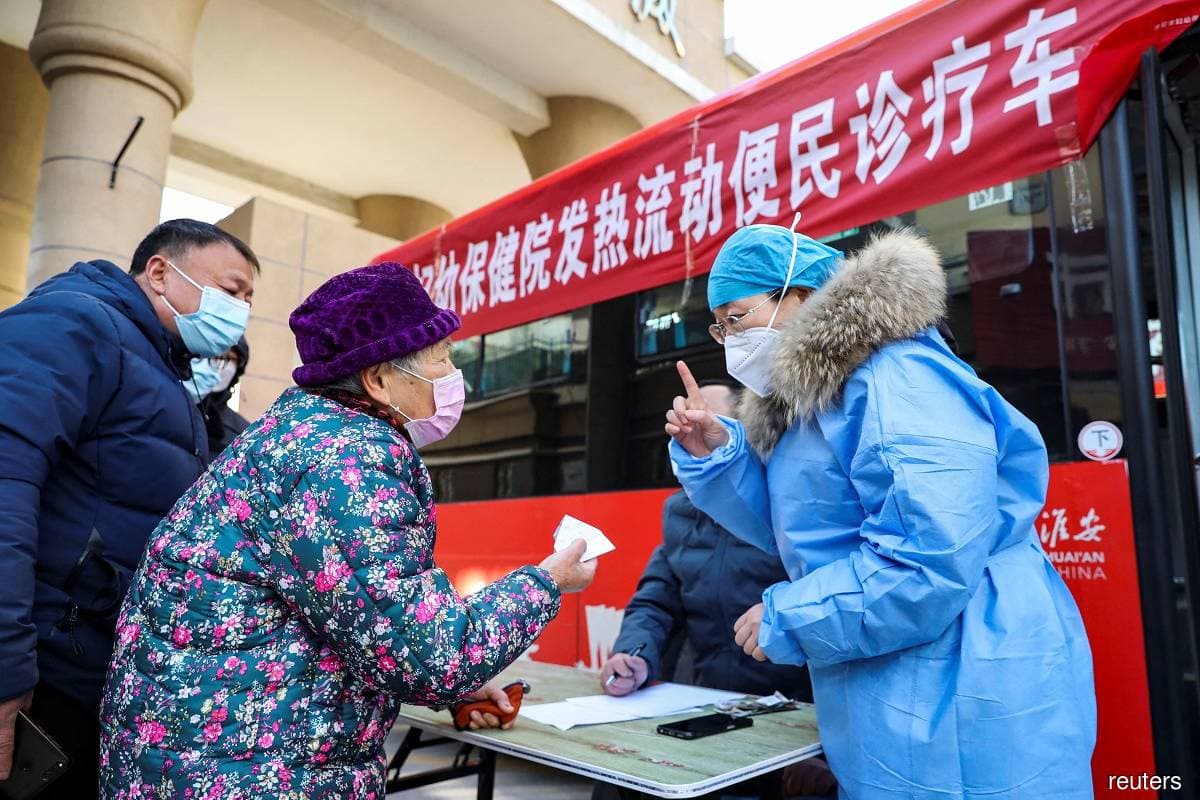
(Dec 28): Covid is starting to tear through nursing homes in China despite efforts by facilities to keep elderly residents protected, showing how severe the consequences of the country’s abrupt pivot from Covid Zero may be.
As China dropped its most severe pandemic-related curbs early this month with little preparation for the surge in cases that followed, many care homes took the decision to shut themselves off from the public and operate in a closed-loop system even without a mandate from the central government to lock down.
The lockdowns have proven ineffective in keeping the virus out, and the toll exacted on nursing homes could fuel public anger over why Beijing didn’t do more to protect its most vulnerable population before allowing the virus to rip through the country. Officials and government-backed health experts had frequently cited the need to protect the elderly to justify Covid Zero over three years.
In Guangzhou, a doctor at a hospital who asked not to be named said that in the past two weeks about two to three elderly patients have died each day after developing severe Covid symptoms in a home. The facility must wait at least four days for a funeral home to collect the bodies rather than on the same day as in the past, said the doctor.
A nurse working in a care home in Shanghai, who would only speak on the condition of anonymity, said that many elderly residents and workers have been infected after the first case was discovered less than a week ago.
The risk of serious illness among the elderly is also magnified by the fact that many seniors remain under-vaccinated compared to other countries that reopened after abandoning curbs. Only 42% of those aged over 80 have had booster shots. Some 8.2 million seniors in China live in 38,000 care homes, according to 2020 data.
At a conference on Dec 22 held with nursing homes and orphanages across China, the Ministry of Civil Affairs stressed that it’s the “top priority” to protect vulnerable groups as the government tries to “prevent serious illnesses and reduce the number of deaths”. The national heath body said on Dec 26 that nursing homes can close their compounds at their own discretion.
Angry Chinese citizens with family members living in care homes are doing what they can to keep their loved ones protected.
Andrew, a Chinese national living in Singapore who would only give his first name, said his mother is living in a care home in a village in southern Fuzhou city. He said he had repeatedly warned the nursing home and the local village authority about the risk of the virus spreading, but that they believed the nursing home would be fine as it operated under a closed-loop system.
Now, he said, the virus is circulating in the facility, where management have said that just 40% of the residents have been fully vaccinated.
“When it comes to vaccination, there has been a lot of resistance, both from the families of the old people, the nursing home itself and the local health care facilities,” said Andrew. His mom finally got her first shot in April and received her third shot only after he repeatedly wrote to the local hospital saying he’d take full responsibility for any side-effects.
Conditions in care homes are compounded by a deepening shortage of drugs and workers, as residents around the country snatch up medicines such as paracetamol. Workers themselves are also falling ill.
“Right after the government announced the lifting of Covid rules, I asked everyone in our procurement team to go to all online and offline channels to grab fever and cough drugs, but still it’s very difficult to get enough,” said He Long, founder of a nursing home in Jingzhou, a city in central Hubei province.
A nursing home in eastern Zhejiang province with 35 senior residents said it is facing challenges getting medicines, test kits and masks, which could worsen when Covid affects even more people outside the homes, according to a letter addressed to family members on Dec 23 posted to its WeChat account. It added that the number of workers wasn’t enough in the first place to deal with an uptick in infections and that soon the virus would start infecting its staff.
The labour crunch has also led to a surge in demand from hospitals and nursing homes for caregivers to look after Covid patients, said Sylvia Wang, a recruiter in Shanghai who specialises in such hiring. The cost of employing a caregiver for six infected seniors has almost doubled in price from early December to 13,000 yuan (US$1,870) a month.
With the Lunar New Year holiday fast approaching and families planning for reunions, the difficulty of keeping seniors safe is expected to grow as many people take advantage of any easing in lockdowns to visit care homes. Medical supplies are also set to remain tight due to the growing wave of infections across the country.
Family members like Patrick Xia can only hope for the best for their elderly relatives. His 90-year-old grandmother stays in a state-owned nursing home in Shanghai, where about 10% of the residents have already been infected.
“What tortures me is that there’s nothing much we can do to stop it happening,” said Xia, adding the facility doesn’t have plans other than separating infected and non-infected residents. He did not allow his grandmother to get vaccinated, as he thinks China’s domestic vaccines carry more risks than benefits.
“My grandma appears very calm when she said she’s already mentally ready for what will happen next,” Xia said. “That’s so typical for her generation, to tolerate everything coming to them.”